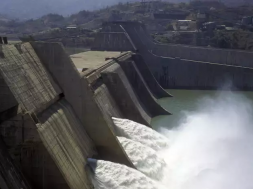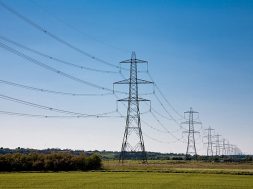
Sources in the know told CNBC-TV18 that the government proposes to exempt bid out solar projects from the customs duty hike.
In a bid to ensure that the domestic manufacturers get an additional push to expand capacities, the Narendra Modi government is soon likely to levy basic customs duty on solar modules, cells and inverters.
Sources privy to the developments told CNBC-TV18 that based on a detailed discussion on August 20 with the Prime Minister’s Office (PMO), revenue department, commerce and the ministry of new & renewable energy, soon the levies will come in to action.
“The proposal which has been cleared post discussions with PMO, is to levy 10 percent basic customs duty on solar modules and 20 percent on solar inverters from October 2020, which will then be hiked to 40 percent on solar modules and 25 percent on solar cells from July 30, 2021,” according to multiple people familiar with the development said.
Also, sources in the know told CNBC-TV18 that the government proposes to exempt bid out solar projects from the customs duty hike. Recently, government had extended 15 percent safeguard duty on solar cells, modules and inverters till July 29, 2021.
“The measures come with a backdrop to reduce India’s import dependence on Chinese products as close to 80 percent of the imports of solar cells, modules and inverters are from China,” sources added.
To kick in the decision, the government will have to come up with a formal notification. These discussions, are primarily to consider the on-going exercise to hike customs duties in line with the Atmanirbhar Bharat program, to support and encourage domestic manufacturing, sources said.
Atmanirbhar Bharat is a vision announced recently by Prime Minister Narendra Modi to make India a self-reliant country. Solar has been one big area where the government has been proposing a hike for quite some time.
In July, union power minister RK Singh had said India needed to bring tariff barriers for imported power equipment, as it posed security threats to the power system in the country. Singh had highlighted that the government is pushing for measures to make India self-reliant in both power and solar power sectors.
“We have decided not to buy any power equipment from China. We are going to release a list of prior reference countries which will include China and Pakistan. The government will not give any permission for imports from prior reference countries. Import from any other country will be inspected under stringent norms because the power system is a sensitive system,” Singh had said.
“The power systems are vulnerable to cyber attacks because of trojan and malware. This can also lead to power shutdown, and then communication lines will be impacted and lead to a database crash in manufacturing, defence industries, etc. Most of the equipment imported are made in India. I urge even states to not use power equipment which is made in China,” he added.
India imported power equipment worth Rs 71,000 crore in FY19, and about Rs 21,000 crore worth equipment alone was imported from China. The country has a target of 175 GW of renewable capacity by 2022, of which 100 GW target is for solar capacity. Some of the players in solar power equipment manufacturing sector are Vikram solar, Adani group, Tata Power, Moser Baer and BHEL.
Experts say such moves will help in fostering domestic manufacturing.
Abhishek Jain, tax partner, EY said, “Tariff spikes on imports should help foster the government’s leitmotif of a self-reliant India. Nonetheless, these hikes would need to be well evaluated especially in the currently financially pressed times, for products which are currently not available in India/ are deficient in supply.”
Prashanth Agarwal, partner PwC said, “The proposed increase in customs duty on import of solar modules/ cells, inverters, re-emphasis govt’s continuous efforts towards Atmanirbhar Bharat. The intent is clearly to promote Make in India and push industry to increase manufacturing capacity of key components of solar power plants in India.”
“With safeguard duty already applicable on solar modules, increase in BCD on imports, in the short-term, would significantly increase the cost of setting up on-going solar projects. The industry could seek reimbursement of incremental costs from govt wherever the tariffs have already been fixed, thus increasing the cost of electricity generation,” Agarwal added.














